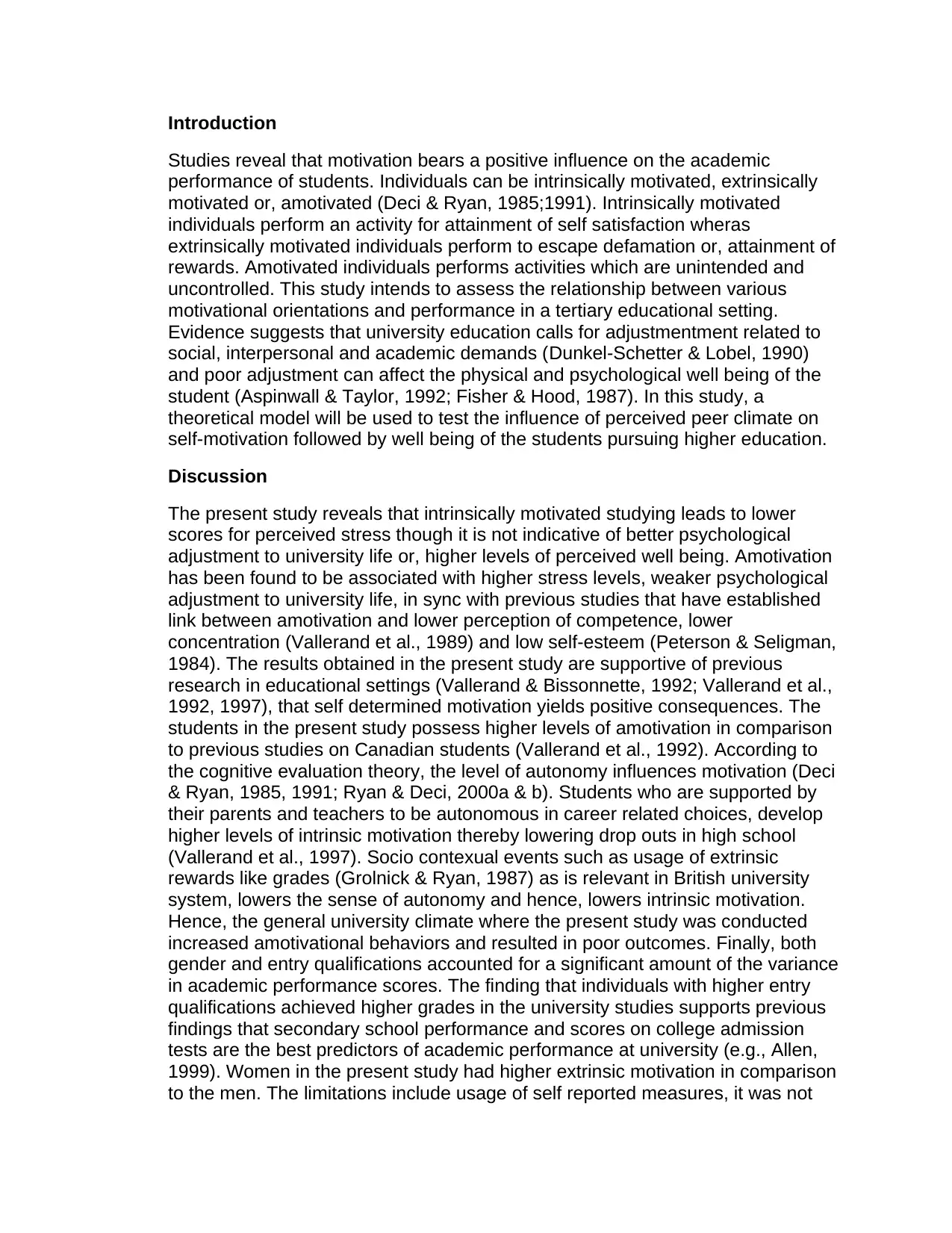Impact of Motivational Orientations on University Student Performance
VerifiedAdded on 2019/09/19
|2
|592
|45
Report
AI Summary
This report investigates the relationship between motivational orientations and academic performance in a university setting. It explores intrinsic, extrinsic, and amotivational factors, highlighting their impact on student outcomes. The study reveals that intrinsic motivation is linked to lower stress levels, while amotivation correlates with higher stress and poorer psychological adjustment. The research also examines the influence of the university climate, gender, and entry qualifications on academic performance. The findings suggest that higher entry qualifications predict better academic outcomes, and women exhibit higher extrinsic motivation. The study acknowledges limitations such as the use of self-reported measures, sample size, and the focus on psychology students, cautioning against broad generalizations. The report provides valuable insights into the complexities of student motivation and its effect on academic success.
1 out of 2








![[object Object]](/_next/static/media/star-bottom.7253800d.svg)